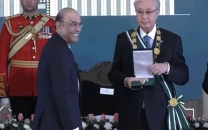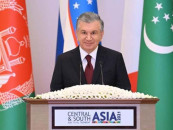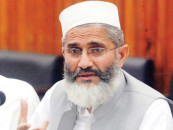Juvenile justice: Draft of Youth Policy debated
Meeting participants suggest policy should address gender issues, early marriage and reproductive health.

Youth groups, civil society representatives, policy makers and government officials attended a meeting to review the draft of the Provincial Youth Policy at the Punjab Institute of Language, Art and Culture (PILAAC), Gaddafi Stadium.
The Punjab government’s Youth Affairs Department, in collaboration with Bargad, a non-governmental organisation, and United Nations Population Fund, invited the participants to provide their input on how the draft of the Youth Policy might be improved. The 18th Amendment resulted in the cessation of the National Youth Policy, formulated in 2009.
Maqbool A Malick, the Planning Deputy Secretary of the Information, Culture and Youth Affairs Department said that in the aftermath of the 18th amendment, new challenges were faced in youth development. He added that the devolution process had helped address youth issues at the grass roots.
Salman Sheikh, a board member of Bargad, said that with the current rate of population growth, youth soon would become a liability instead of a resource. He said the policy should focus on ways to bring the youth ahead in all sectors. He recommended decreasing the retirement age, which he said would pave the way for the young.
Senior Health Advisor Dr Irfan Ahmed, from Plan Pakistan stressed the need to focus on the language used in the draft. He said the stakeholders should keep in mind that the policy aims to provide youth with their basic rights and should address issues of gender, early marriage, sexual and reproductive health clearly.
Shahzad Khan from Chanan Development Association (CDA) said the Policy should ensure that the executive position in the body governing youth affairs be held by a young person. The political empowerment of youth, he said, required appropriate education for them to ensure they make the right decisions.
United Nations Development Programme (UNDP) representative Sana Zia raised concerns about the Youth Policy clashing with existing youth programmes in different ministries. She said that the ministries should achieve consensus to avoid any overlap.
Saqib Murtaza, the Programme Officer of Bargad, told The Express Tribune that the meeting was a first step towards taking policy-making out of the Parliament and involving civil society. He added that only when civil society was taken on board could there be ownership for the policies made and individuals held accountable for their implementation.
Additional Secretary Tariq Ahmed Rao raised concerns regarding the formulation of the draft in a month. He said the ages between 15 and 29 were prime years and it was unfortunate that a policy addressing those years was being formulated with such haste and without taking all the stakeholders on board.
Society for Protection of the Rights of Children Programme Manager Iftikhar Mubarik said the Youth Policy needs to address the problems that vulnerable youth in our society face. Mubarik hoped the policy would make provisions for setting up of a separate juvenile justice system. He said there was a complete absence of counseling in Punjab for juvenile offenders.
Noor, a LUMS student, said the government was not trusted by the masses and especially the youth. Ali Zaryab, a member of Youth Exchange and Study Alumni, said youth were focused only on issues directly connected with them. He added that there was a dire need to raise awareness among them.
Bargad Executive Director Sabiha Shaheen said the meeting was an attempt to create synergies between the various stakeholders. She hoped the meeting would help in improving the draft in order to formulate and legislate an effective Youth Policy.
Published in The Express Tribune, August 26th, 2011.



















COMMENTS
Comments are moderated and generally will be posted if they are on-topic and not abusive.
For more information, please see our Comments FAQ